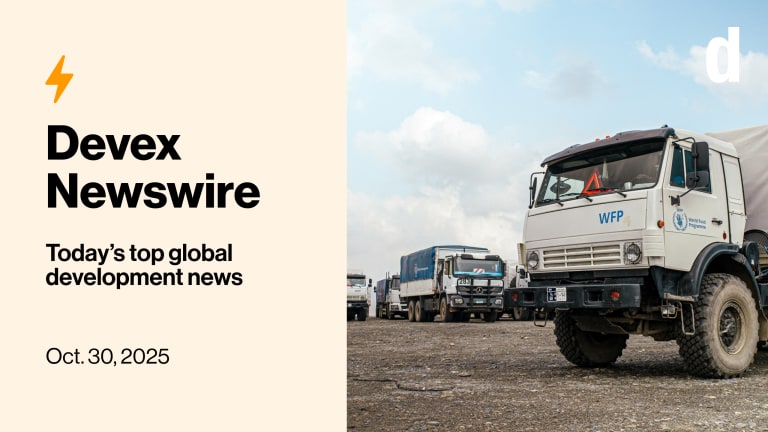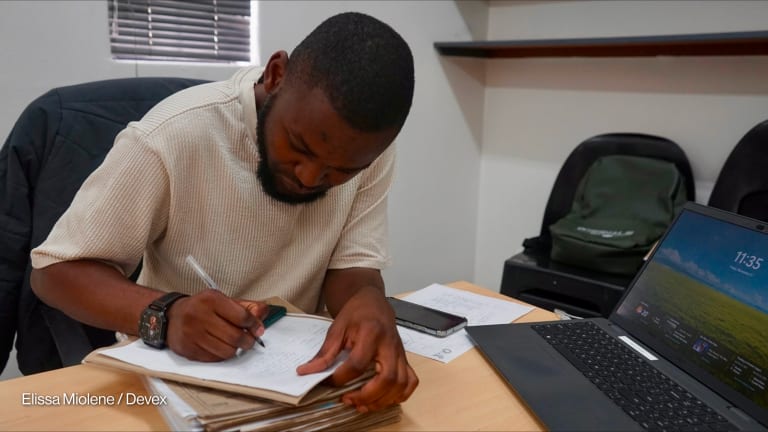JUBA, South Sudan — Last week, ambassadors from China, Kenya and the U.S. met with First Vice President of South Sudan Taban Deng Gai to express concern over the country’s dramatic new aid worker permit fees.
In early March the South Sudan Ministry of Labor shocked aid workers by announcing a $10,000 work permit fee, a drastic hike on the previous fee of roughly $200.
The new law, which states the fee must be paid annually, applies to any foreigner wishing to work in South Sudan, including aid and humanitarian workers. Those working for the U.N., however, are exempt.
Printing articles to share with others is a breach of our terms and conditions and copyright policy. Please use the sharing options on the left side of the article. Devex Pro members may share up to 10 articles per month using the Pro share tool ( ).
Search for articles
Most Read
- 1
- 2
- 3
- 4
- 5








